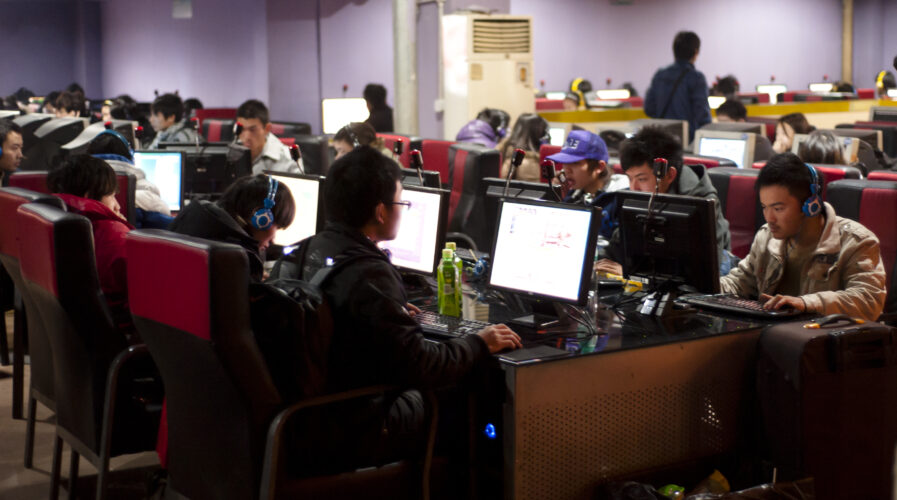
(Source – Shutterstock)
Is safer internet day a long-term possibility?
Safer Internet Day is celebrated on the 8th of February. This year, the 19th edition is themed “Together for a better internet” and calls upon all stakeholders to join together to make the internet a safer and better place for all, especially for children and young people.
While several NGOs advocating safer internet and data privacy are having events and workshops around the world on Safer Internet Day, Google is also making its presence felt. The world’s largest search engine, Google Search continues to advocate safe internet searches.
In fact, Google Search trends revealed searches related to privacy and data breaches grew by more than 20% in 2021, across places as diverse as Australia, Hong Kong, India, Indonesia, and Singapore. Hence, this Safer Internet Day, specifically in Southeast Asia, Google will be supporting and continuing several digital responsibility initiatives to raise digital literacy and create a safe and secure internet experience for everyone.
According to Scott Beaumont President, of Asia Pacific for Google, Asia Pacific has an online population of over 2.5 billion and has led to new opportunities, especially in helping people communicate, find information, and access vital services. However, Beaumont also pointed out that this growth has reinforced the need for vigilance in the face of a growing range of threats to online safety and privacy.
“Our highest priority is to safeguard the Google tools that people use every day. We have hundreds of engineers and other experts, many based in Asia-Pacific, working to make sure that people’s accounts are secure and Google infrastructure is defended against intruders. These teams also develop simple tools — like Security Checkup and Privacy Checkup — which people can use to strengthen their security and privacy settings.
But we recognize that our responsibility for internet safety goes beyond our own tools and technology. Keeping people safe online is a shared challenge, not something that anyone organization can do alone. One of the most powerful ways we can help protect people is by equipping them with the skills and knowledge to navigate the internet safely,” commented Beaumont.
At the same time, Google is also supporting initiatives for safer internet. Google.org, its philanthropic arm, is supporting nonprofit organizations with approximately US$ 5 million in grant funding across the Asia Pacific to raise awareness about security and media literacy and promote positive online habits. This builds on the more than US$ 11 million that Google.org has committed to digital responsibility initiatives over the past five years.
In Singapore, Google is partnering with RSVP Singapore to provide digital literacy programs to seniors, along with discounted devices to offer an experiential learning experience for seniors at RSVP’s new center. Over in Indonesia, Google is supporting the work of organizations like the Sejiwa Foundation, which is dedicated to helping children and their parents make safe decisions online.
Safer Internet for everyone
Meanwhile, safer internet is also about acknowledging the importance of cybersecurity for businesses around the world. The ASEAN region in particular, continues to be heavily targeted by cybercriminals as they know there are still weaknesses in most organizations’ cybersecurity plans.
For Anthony Di Bello, Vice President, Strategic Development at OpenText, the initial cybersecurity scramble caused by the pandemic is now a thing of the past, and businesses and employees everywhere have successfully adapted to the changes it brought. However, in 2022, he believes organizations will face a new problem: remaining secure while hybrid working becomes increasingly more prevalent in professional lives.
“Employees will continue to connect to corporate networks from a wide variety of devices, via various internet connections ranging from home networks, café Wi-Fi, and offices. And so far, cybercriminals have been taking full advantage: with a triple-digit increase in cyberattacks seen in the first half of last year alone. The threat of ransomware, the impact of misinformation, and phishing scams should be top of mind for information security professionals, employees, and consumers alike,” explained Di Bello.
There is no denying that awareness and a basic understanding of the threats are the basis for the importance of Safer Internet Day in 2022. Di Bello believes that an increased focus on ensuring that security is front-and-center of both consumers’ and employees’ minds is key. Putting cybersecurity at the top of their list of priorities – keeping themselves and the businesses they work for safe.
READ MORE
- The criticality of endpoint management in cybersecurity and operations
- Ethical AI: The renewed importance of safeguarding data and customer privacy in Generative AI applications
- How Japan balances AI-driven opportunities with cybersecurity needs
- Deploying SASE: Benchmarking your approach
- Insurance everywhere all at once: the digital transformation of the APAC insurance industry


